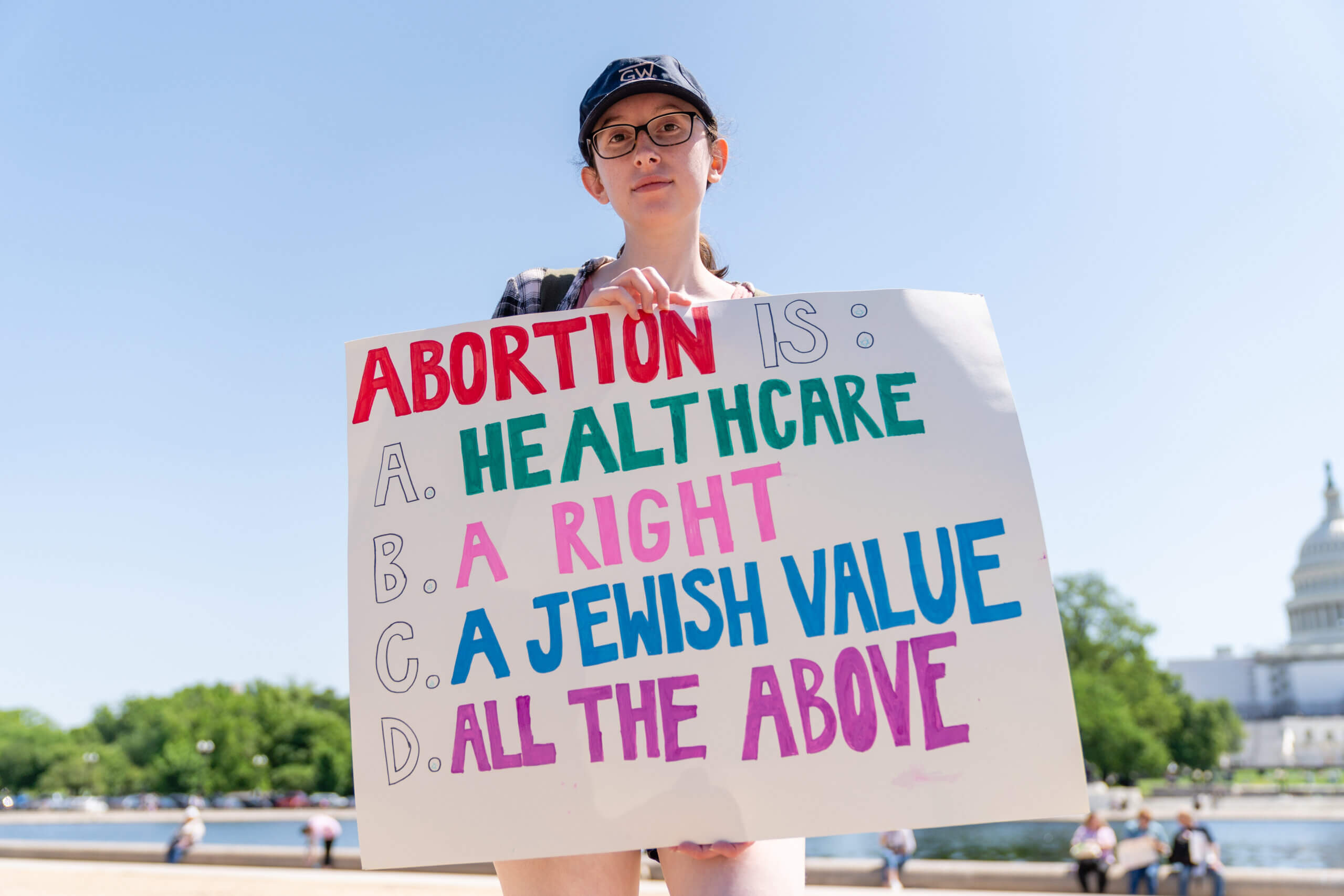Orthodox Jewish feminist group launches project to ease access to abortion
‘We are prioritizing women who need abortions,’ said Daphne Lazar Price, executive director of the Jewish Orthodox Feminist Alliance

Graphic by Angelie Zaslavsky
A prominent Orthodox feminist group is launching a project on Thursday to help Orthodox Jews access abortion, particularly those who live in states where the procedure is no longer legal or remains accessible in very few circumstances.
The Jewish Orthodox Feminist Alliance will refer women to groups that can facilitate abortions, educate rabbis on the topic and develop a network of Orthodox supporters who can guide women who want to end their pregnancies. An “Abortion Access” link now sits high on the group’s homepage.
“Some other Jewish groups are working on legislation and doing awareness-raising, but we are prioritizing women who need abortions,” said Daphne Lazar Price, JOFA’s executive director.
“Our expertise is in the Orthodox community, but if someone else reaches out to us for help, we will not turn them away,” she added.
The impetus for the project is the Supreme Court ruling in June that overturned Roe v. Wade, the landmark 1973 federal case that established a federal right to an abortion. The end of Wade left about a third of the nation’s women of childbearing age nearly without access to an elective abortion in their home states.
JOFA, which has about 7,000 members in the U.S., said it will coordinate with Orthodox communities across the nation to implement its new project.
“It is just as important in Texas as it is in Teaneck,” she said. Texas bans abortions at all stages of pregnancy except for rape, incest or the health of the mother. Teaneck, with its sizable Orthodox population, is a township in New Jersey, a state that permits abortions at all stages of pregnancy.
JOFA may raise some eyebrows within the Orthodox community for its embrace of abortion rights, but it wouldn’t be the first time this year that the group made headlines. In the spring, the group was thrown into turmoil over accusations of sexual harassment against one of its founders.
A namesake who suffered
JOFA’s abortion project is called the Rivka Isaacs SAFE plan, an acronym for support, advocacy, funding and education. It is named for JOFA board member Paula Eiselt’s great-grandmother, who almost died in the mid-1930s when she had a back-alley abortion.
“Soon after the Depression they couldn’t afford another child and she had to have an abortion,” Eiselt said of her great-grandmother, who was born in Queens. Isaacs waited until late in life to tell speak of her abortion.
“It was such an horrific experience that when she talked about it, she started to cry,” Eiselt said.
Orthodoxy and abortion
About 90% of American Jews are not Orthodox, and, surveys show, believe more than any other religious group that women should have the right to an abortion. The Orthodox stance, though, is more diverse and nuanced. Though some Orthodox rabbis hold that the procedure should be exceedingly rare, others are willing to accept it in various circumstances.
But Orthodox Jews who are opposed to abortion do not align with the Christian activists who pushed for the overturning of Roe. Agudath Israel, the Orthodox umbrella group, has weighed in against abortion bans.
“A lot of people do not have all the information about what Jewish law says about abortion, Price said. “It is much more lenient than our Christian counterparts.”
She said JOFA intends to post on its website sources that explain what Jewish law permits.
‘Large families’
As part of the project, JOFA aims to develop a network of Orthodox volunteers, so that when Jewish women choose abortion, they can be supported by someone “who understands them, knows of their needs for Shabbat and other cultural and religious considerations,” Eiselt said.
JOFA has published on its website information to help women find abortion clinics and legal and medical advice on the topic, and it plans public rallies and sign-on letters in partnership with other organizations to raise awareness of bills and laws surrounding abortion. As a 501(c)(3) organization that is tax-exempt, it cannot support candidates or lobby for legislation.
“But we can encourage people to register to vote and direct people to organizations that can lobby, such as the National Council of Jewish Women,” Price said. “And we can reach out to our elected officials and thank them for a bill or encourage them to rethink their position on an issue.”
Another part of JOFA’s initiative is to make sure rabbis are educated about abortion. “It is part of health care in a community that is having a lot of children,” Eiselt said. “You can’t encourage women to have large families and not talk about abortion because every pregnancy can’t be perfect.”























